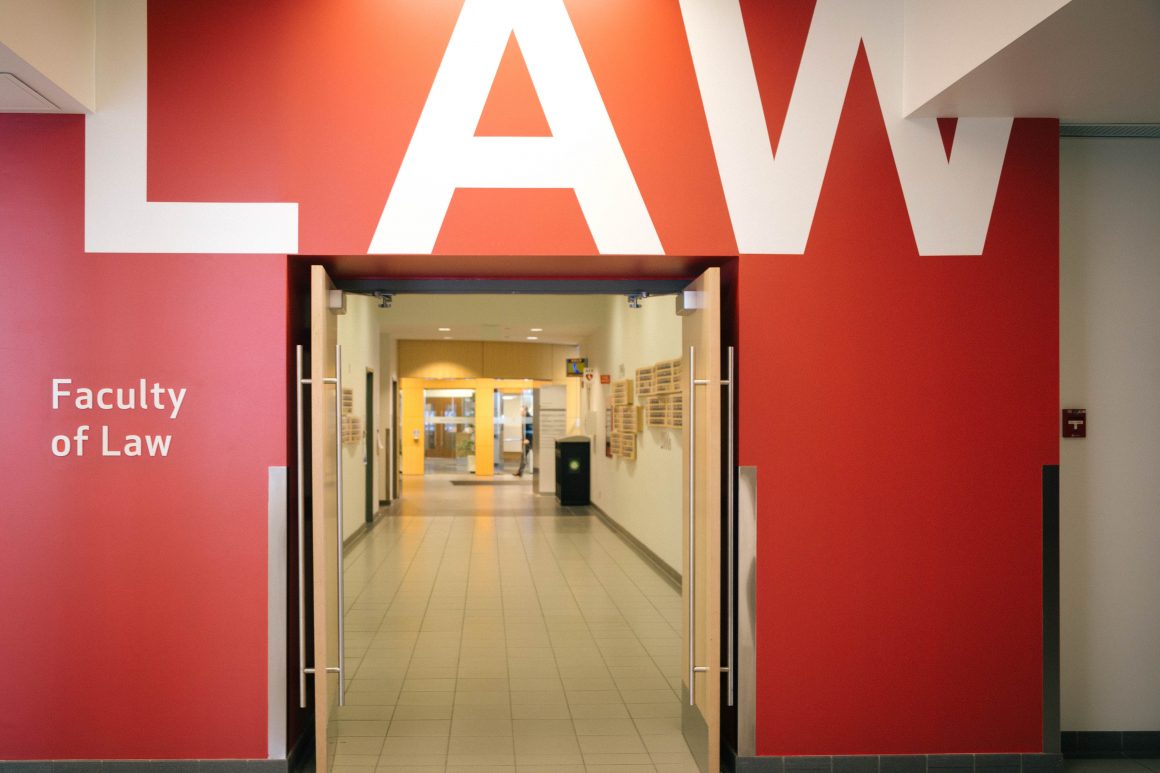
Faculty of Law takes part in nation-wide immigration policy research marathon
By Scott Strasser, February 6 2017 —
Fifty-four students and three professors from the University of Calgary Faculty of Law took part in a nation-wide 12-hour immigration policy research marathon on Feb. 4.
The idea for a law research-a-thon started at McGill University and was partially in response to a Jan. 27 executive order from United States President Donald Trump. Though currently suspended by a Seattle federal judge, the executive order temporarily banned people from seven Muslim-majority countries from entering the U.S. It also prohibited political refugees from entering the U.S. for 120 days.
The research-a-thon saw 838 students from all 22 law schools in Canada work in shifts to help gather information on the Safe Third Country Agreement (STCA), a bilateral treaty between the U.S. and Canada. The event also aimed to raise awareness and funds for the Canadian Council for Refugees (CCR), a non-profit organization that seeks to protect refugees’ rights in Canada.
The STCA was signed in 2004 and stipulates that a refugee status claimant must make their claim in the first country they land in. Since neither the U.S. nor Canada are considered dangerous countries by the other, the agreement seeks to prevent refugee claimants from choosing which country to live in.

First-year law students Caesar Agudelo and Shannon Faleiro helped organize the research-a-thon // Photo by Scott Strasser
“The STCA is an agreement in which Canada recognizes the U.S. as a safe country and the U.S. does the same for us,” said first-year law student Caesar Agudelo, who helped organize the U of C’s research session. “In legal terms, that means people coming from either country to the other one would have to apply for refugee status in the country that they
first arrived in.”
For the research-a-thon, each Canadian law school looked at a specific portion of the STCA and worked to draft arguments for potential legal challenges to the treaty. U of C students focused on a legal challenge made to the STCA from 2007.
Second-year law student Katie Moore, who helped organize the U of C portion of the research-a-thon, said the STCA is problematic for refugees currently trying to enter Canada from the U.S.
“With the [recent] executive order, that meant people in the U.S. may have been stuck there but weren’t able to seek help from Canada because of the STCA,” Moore said. “[The agreement] worked in the past but because of the executive order, it’s stopped people from seeking asylum.”
Agudelo said Trump’s executive order calls into question whether the U.S. is a safe third country for a refugee status claimant.
“When we have people banned from specific areas of the world in critical need and we’re seeing mass migration because of war and violations of human rights, it makes you wonder — is the U.S. a viable option for a refugee? In my opinion, I’d say no,” he said.
In a statement, CCR executive director Janet Dench said the organization was proud to partner with Canadian law schools for the research-a-thon.
“At a time when the U.S. is adopting anti-refugee and anti-Muslim measures, we do not believe that Canada should turn back refugee claimants at the land border,” Dench said. “The fact that hundreds of students are giving up their time to work on this project on short notice shows that they — like many other Canadians — want Canada to support refugees not only through words, but also through actions.”
The national research-a-thon resulted in 3,000 collective research hours and raised roughly $7,500 for the CCR.
